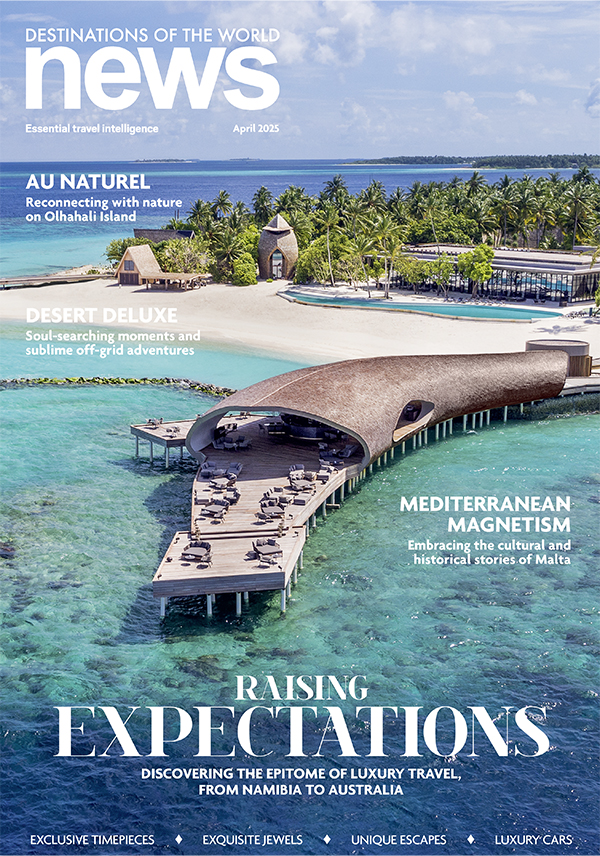In your role as Senior Director of Culinary for Marriott International EMEA, how are you able to make a mark from a sustainability perspective?
It is my goal to raise awareness about sustainability within my culinary teams. I want to provide them with the necessary knowledge and understanding of sustainable practices so that they can make informed decisions in their daily work. Ultimately, my aim is to inspire passion and enthusiasm for sustainability, creating a culture of responsible and mindful culinary practices across the organisation.
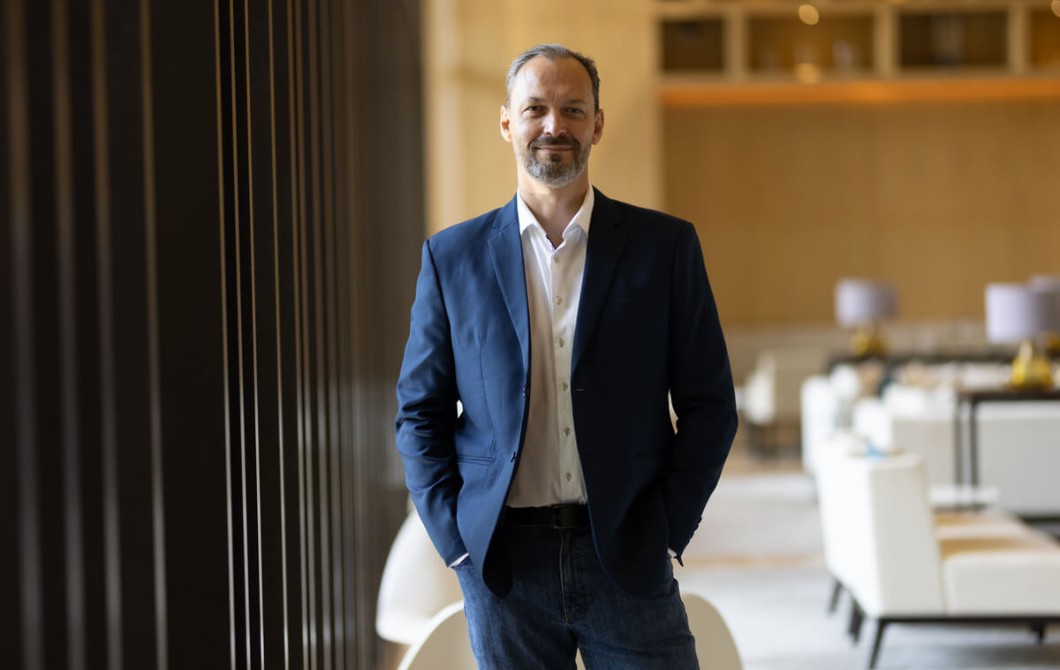
We all must start somewhere, but beyond reducing waste, for example, what else should the F&B industry be doing?
While reducing waste and cutting carbon footprints are essential steps towards a more sustainable F&B industry, there is much more that can be done to achieve a truly sustainable future. One important aspect is to gain a better understanding of the environmental impact of our food choices. We must start to recognise and appreciate what it takes to grow, produce and transport the ingredients that we often take for granted. This understanding can lead to a shift towards more mindful food choices that prioritise sustainable practices, such as local and seasonal sourcing, reducing food miles, and supporting regenerative agriculture
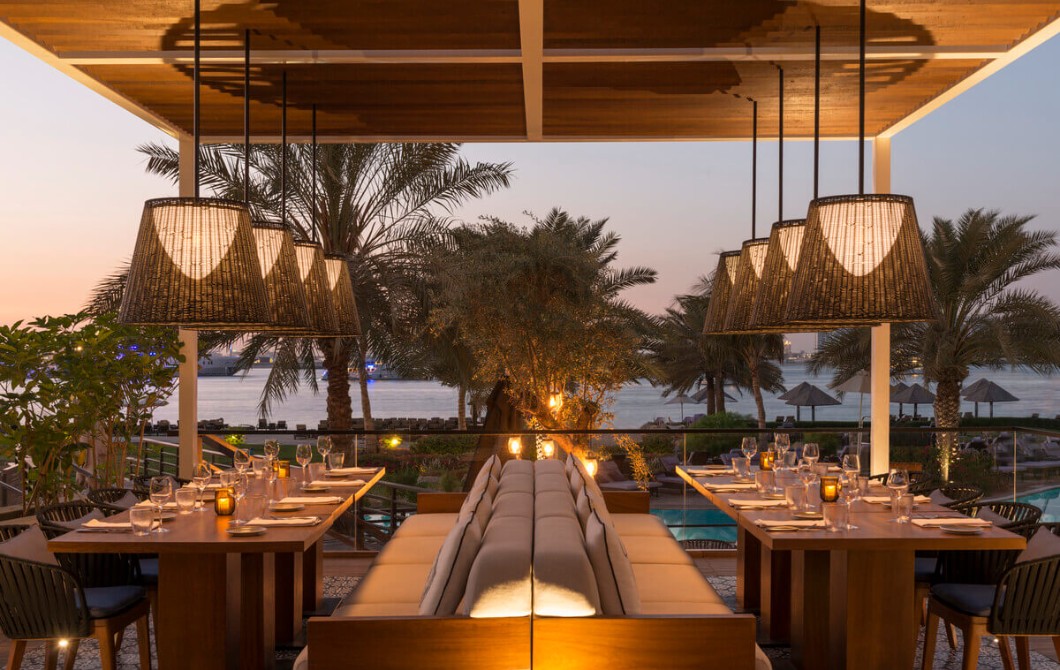
People are increasingly concerned in where their food comes from, wanting to feel good about what they eat, not guilty. Have you noticed this amongst your guests?
In recent months, we have noticed a growing trend among Marriott guests towards flexitarian, locally produced, and healthy food options. Guests are increasingly interested in knowing the source of their food, how it is handled and treated, and how we, as chefs, can maximise its potential without sacrificing quality, flavour, appearance, and minimising waste. It is essential to listen to our guests and understand their preferences and concerns when it comes to food. By doing so, we can tailor our menus and culinary practices to meet their expectations, provide a better dining experience, and promote a more sustainable and responsible food industry.
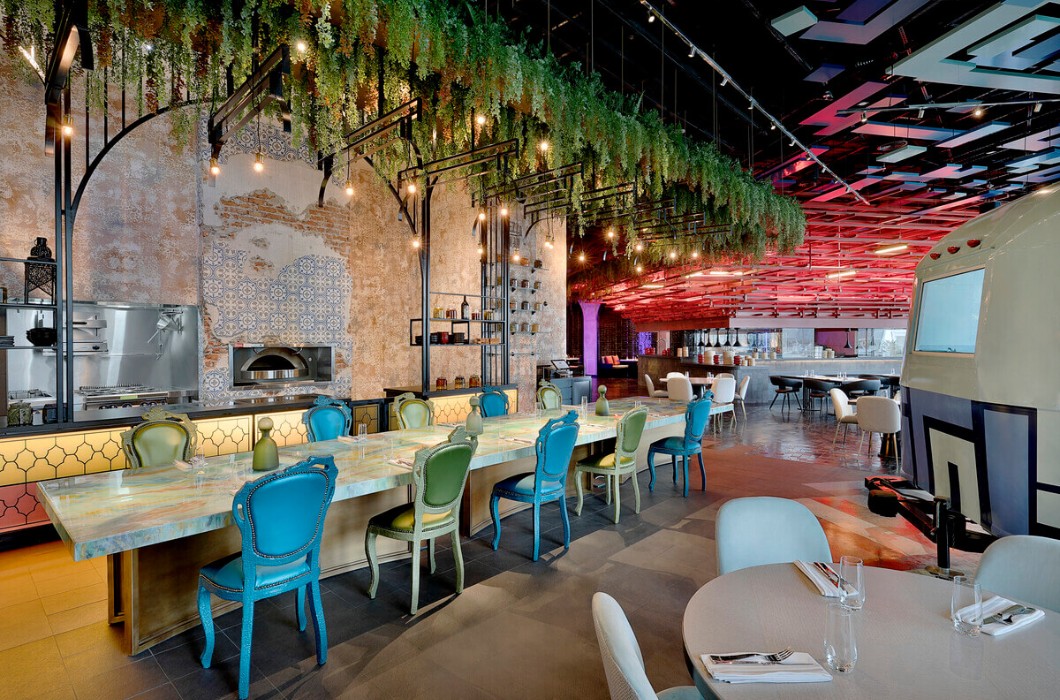
In terms of provenance of ingredients, how local are you to the locations you’re in?
I think it is important to source ingredients locally wherever and whenever possible.
While we strive to support local producers and farmers, we also recognise the importance of maintaining the high-quality standards expected by our guests. Therefore, we may source certain ingredients from other regions or countries to ensure that we can consistently provide the best possible dining experience. Ultimately, our goal is to strike a balance between supporting local producers and meeting the expectations of our guests.
-bkl6hq.jpg)
I understand you have several vertical farms. In layman’s terms, what is a vertical farm and what are their benefits?
Sustainability and supporting local agriculture are at the heart of our operations and it is becoming more and more important in the world today, which is why we have implemented several vertical/hydroponic farming containers in our hotels. Essentially, these containers are created by companies that specialise in hydroponic farming, and we use them to grow a variety of fruits, berries, vegetables, sprouts, and herbs that are tailored to the specific needs of each hotel.
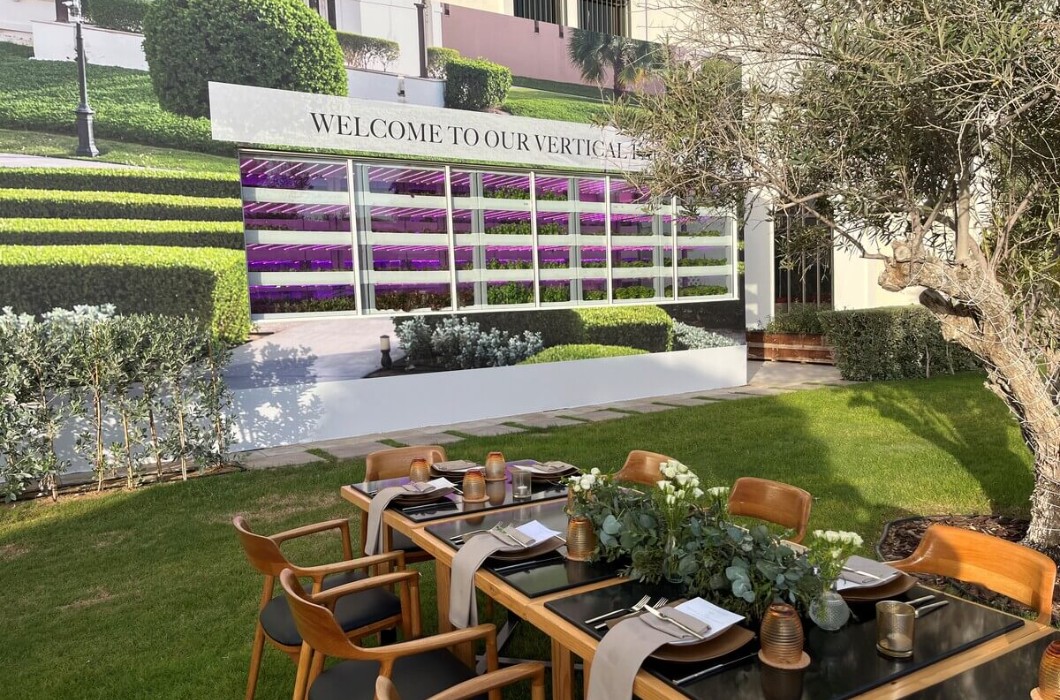
The benefits of this approach are numerous. By growing our own produce on-site, we can ensure the freshest, highest-quality ingredients for our guests, while also reducing the carbon footprint associated with transporting food long distances. Furthermore, vertical farming allows us to utilise space more efficiently and reduce water usage, which is particularly important in arid regions such as Abu Dhabi. Our culinary team is able to incorporate this locally-grown produce into their menus, resulting in a unique dining experience for our guests. It is incredibly satisfying to be able to harvest a tomato or herb right before a guest’s eyes, knowing that it is as fresh as possible and grown with sustainability in mind.
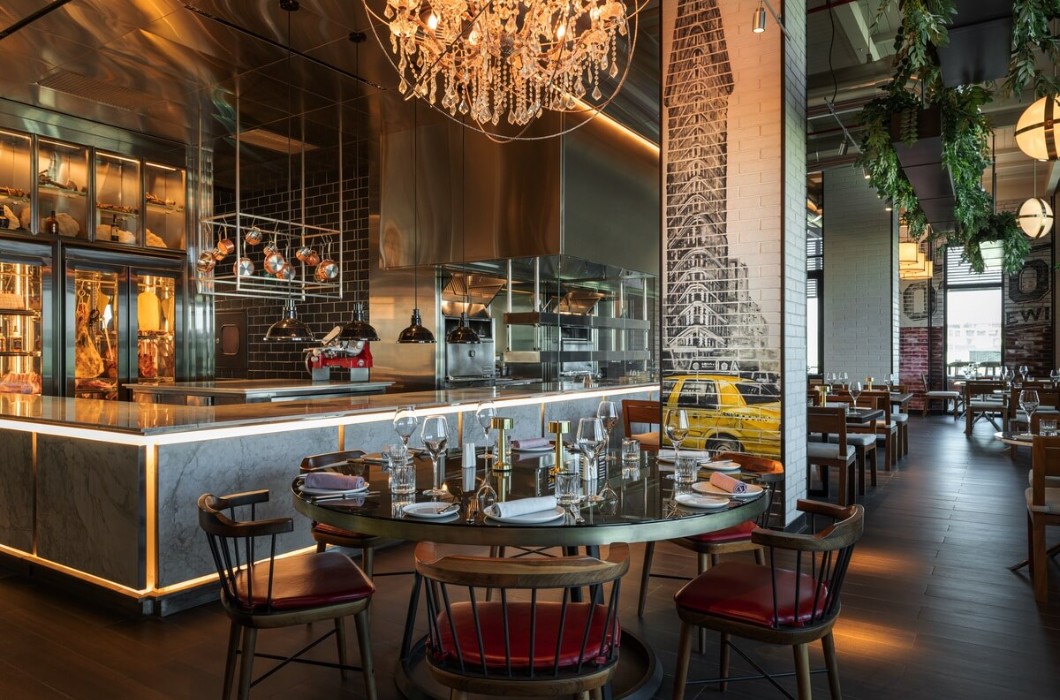
The dining out scene is more immersive and experiential than ever. How do you continue to ‘push the culinary edge’ whilst being environmentally conscious?
The F&B world is ever changing and nowadays guests expect their dining experience to be more immersive and experiential than ever. This is why we strive to push the culinary edge for our guests while also being environmentally conscious. We leverage the size and diversity of our hotels to our advantage, offering a wide range of culinary options that cater to different tastes and preferences. In addition, we have a team of highly skilled culinary experts and craftsmen who are passionate about their craft and are always looking for ways to innovate and improve our offerings.
-ultcf.jpg)
We provide our chefs with the tools and guidance they need to create unique and exciting culinary experiences for our guests, while also encouraging them to think creatively and push the boundaries of what is possible. We believe that attracting and retaining passionate chefs is key to staying competitive in the rapidly evolving food industry. At the same time, we remain committed to being environmentally conscious in all of our culinary operations. We source our ingredients locally wherever possible, reduce food waste, and use sustainable practices in our kitchens. By striking a balance between pushing the culinary edge and being environmentally responsible, we can create memorable dining experiences for our guests while also contributing to a more sustainable future.

We all have a social responsibility to ‘do better’. What advice would you give someone to become more ‘sustainable’?
Firstly, treat your kitchen like your parents did – cook with passion and love, and only serve the best you can. This means using high-quality ingredients, sourcing them locally whenever possible, and being mindful of the impact that your culinary choices have on the environment.
Secondly, never waste any food or great ingredient. This means being creative and resourceful with your ingredients, using all parts of the produce and finding new ways to repurpose leftovers. By reducing food waste, you can not only help the environment but also save money and improve the quality of your culinary offerings.
Finally, educate yourself and your team on sustainable practices and incorporate them into your operations wherever possible. This can include using energy-efficient appliances, reducing water usage, and implementing recycling and composting programs.

Lastly, what excites you most about the culinary industry at the moment?
The trend of “less is more” is particularly intriguing to me. It involves offering smaller, more focused menus that are carefully curated to showcase the best of what a restaurant or hotel has to offer. Another exciting development is the growing emphasis on using local, artisanal producers to source ingredients. This not only supports small-scale producers but helps to promote a more sustainable and environmentally friendly approach to cooking.

I’m also thrilled to see that vegetarian dishes are becoming more popular and mainstream. This is a great opportunity for chefs to get creative and explore new ways of preparing and presenting plant-based cuisine. Finally, I’m always excited to see new cooking techniques and the re-emergence of classic dishes done well. The culinary industry is constantly evolving, and I believe that this combination of innovation and tradition is what makes it such an exciting and dynamic field to be a part of.
THE GRILLING...
THE MOTTO YOU WORK BY: Lead by example, have your ears and hands on the ground and always be a positive example to others.
BEST PIECE OF ADVICE YOU'VE GIVEN: Set yourself the highest standards and never compromise on quality.
FAVOURITE RESTAURANT IN THE WORLD: Tasting Menu at Eleven Madison Park, NYC.
FAVOURITE PLACES TO TRAVEL FOR FOOD: Singapore and Bangkok. In Singapore, the chilli crab and fried bread at the renowned No Signboard Seafood restaurant is nothing short of divine. In Bangkok, it’s all about the street food markets, and sampling dishes by local experts who have mastered a single dish for years and years.
THE CHEF YOU MOST ADMIRE AT THE MOMENT: Daniel Humm – I love the simplicity of his food, and how he lets his ingredients and quality flavours do the talking.
ONE RESTAURANT DOING GREAT THINGS IN THE FIELD OF CULINARY SUSTAINABILITY: I love what we do at Marriott Heathrow hotel. The culinary team has taken food waste reduction and sustainability to another level. Giving them a platform to express themselves, some guidance and inspiration, they have become a prime example of how you can make a positive impact by doing things right.
GREATEST CAREER INSPIRATION: My master chef who taught me throughout my apprenticeship – he was and still is the one I trust and ask for advice in and outside the culinary field at any time. With his honest, straight-forward approach and a lifetime of experience, he has helped me a lot in my career.









